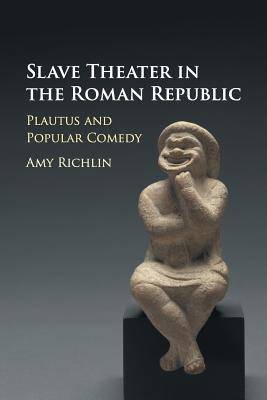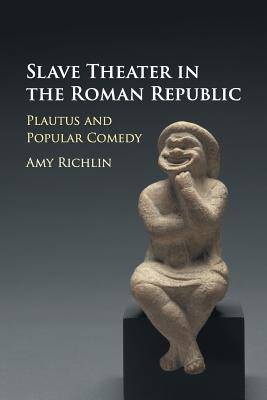
Bedankt voor het vertrouwen het afgelopen jaar! Om jou te bedanken bieden we GRATIS verzending (in België) aan op alles gedurende de hele maand januari.
- Afhalen na 1 uur in een winkel met voorraad
- In januari gratis thuislevering in België
- Ruim aanbod met 7 miljoen producten
Bedankt voor het vertrouwen het afgelopen jaar! Om jou te bedanken bieden we GRATIS verzending (in België) aan op alles gedurende de hele maand januari.
- Afhalen na 1 uur in een winkel met voorraad
- In januari gratis thuislevering in België
- Ruim aanbod met 7 miljoen producten
Zoeken
€ 69,45
+ 138 punten
Uitvoering
Omschrijving
Roman comedy evolved early in the war-torn 200s BCE. Troupes of lower-class and slave actors traveled through a militarized landscape full of displaced persons and the newly enslaved; together, the actors made comedy to address mixed-class, hybrid, multilingual audiences. Surveying the whole of the Plautine corpus, where slaves are central figures, and the extant fragments of early comedy, this book is grounded in the history of slavery and integrates theories of resistant speech, humor, and performance. Part I shows how actors joked about what people feared - natal alienation, beatings, sexual abuse, hard labor, hunger, poverty - and how street-theater forms confronted debt, violence, and war loss. Part II catalogues the onstage expression of what people desired: revenge, honor, free will, legal personhood, family, marriage, sex, food, free speech; a way home, through memory; and manumission, or escape - all complicated by the actors' maleness. Comedy starts with anger.
Specificaties
Betrokkenen
- Auteur(s):
- Uitgeverij:
Inhoud
- Aantal bladzijden:
- 580
- Taal:
- Engels
Eigenschappen
- Productcode (EAN):
- 9781316606438
- Verschijningsdatum:
- 16/05/2019
- Uitvoering:
- Paperback
- Formaat:
- Trade paperback (VS)
- Afmetingen:
- 152 mm x 229 mm
- Gewicht:
- 766 g

Alleen bij Standaard Boekhandel
+ 138 punten op je klantenkaart van Standaard Boekhandel
Beoordelingen
We publiceren alleen reviews die voldoen aan de voorwaarden voor reviews. Bekijk onze voorwaarden voor reviews.









